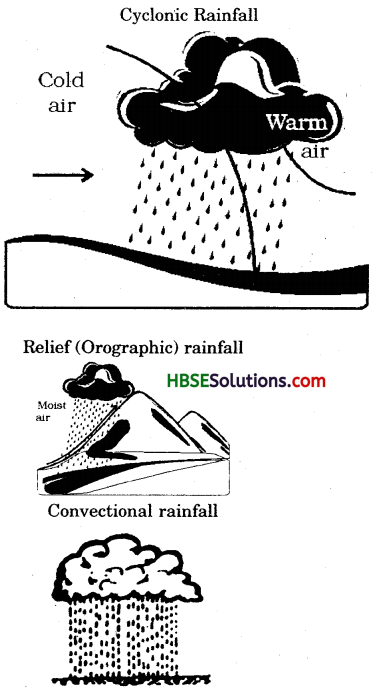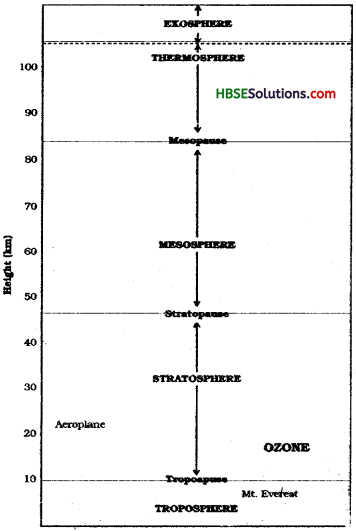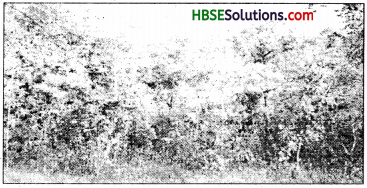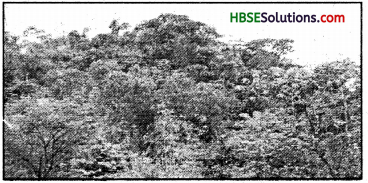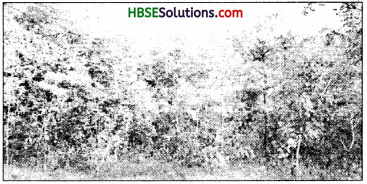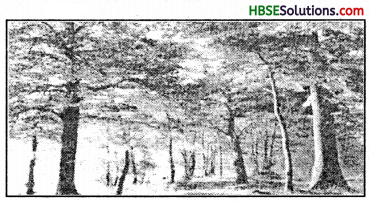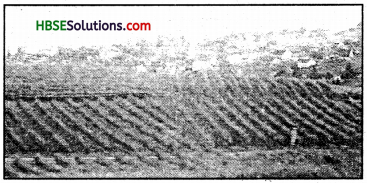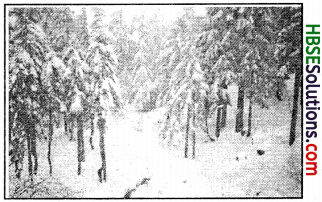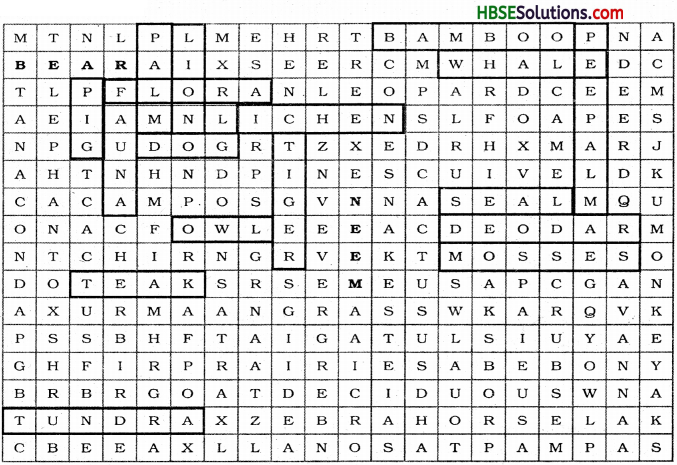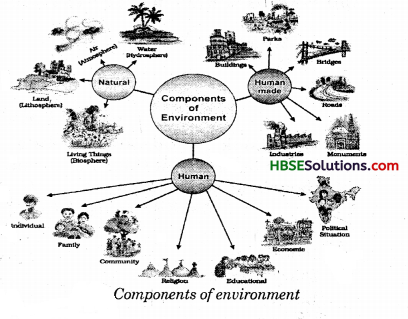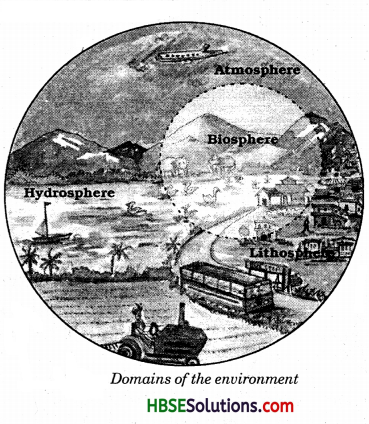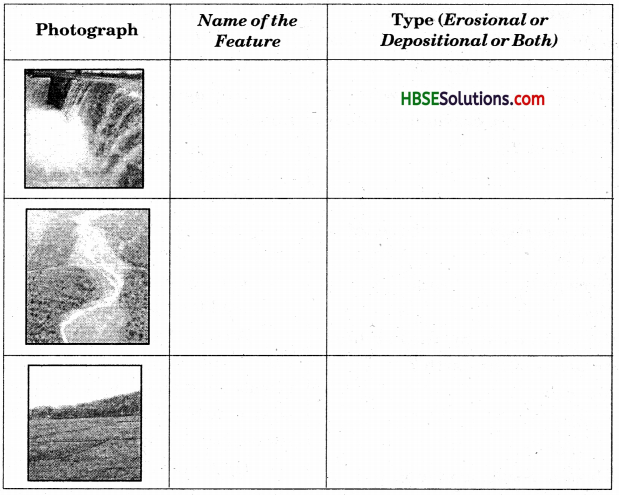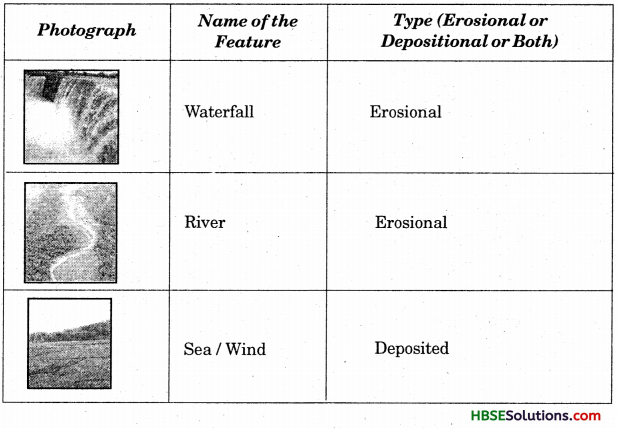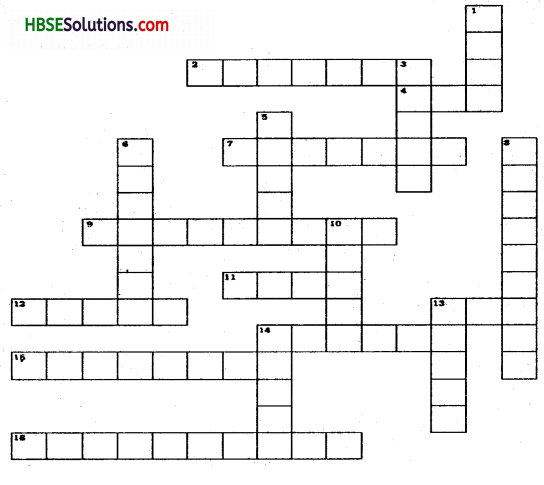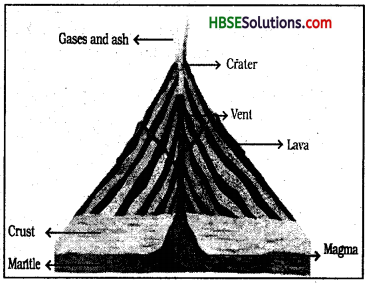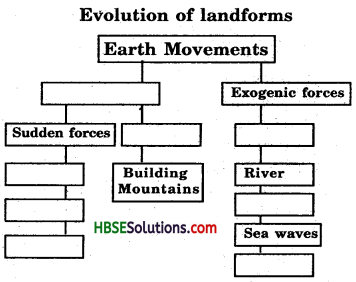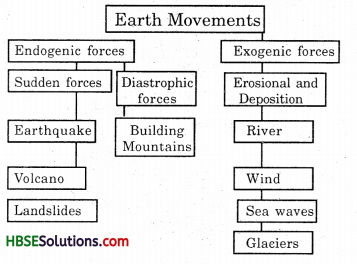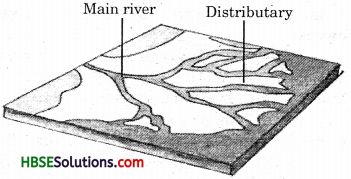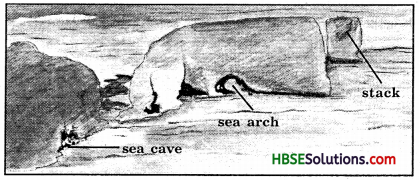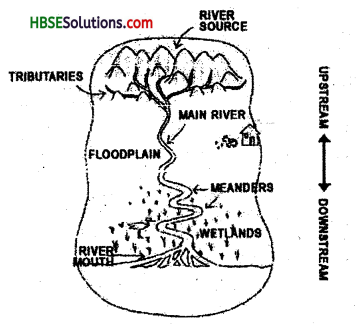Haryana State Board HBSE 12th Class English Solutions Vistas Chapter 5 Should Wizard Hit Mommy? Textbook Exercise Questions and Answers.
Haryana Board 12th Class English Solutions Vistas Chapter 5 Should Wizard Hit Mommy?
HBSE 12th Class English Should Wizard Hit Mommy Textbook Questions and Answers
Question 1.
What is the moral issue that the story raises? [H.B.S.E. 2020 (Set-C)] (यह कहानी किस नैतिक प्रश्न को उठाती है?)
Answer:
The story presents two viewpoints. The first is the adult’s view of the world and the second is the children’s view. The story raises the moral issue whether the parents should impose their own point of view on the children. The parents want that their children should be obedient. They should accept their viewpoints. On the other hand, the children have their own questions which must be satisfied. Jack tells his daughter Jo a story. She does not like the ending of the story. She wants that the wizard should hit the skunk’s mommy for giving him his bad smell back. But Jack defends the skunk’s mommy.
(कहानी दो दृष्टिकोण प्रस्तुत करती है। पहला वयस्क लोगों का संसार के बारे में दृष्टिकोण है और दूसरा एक बच्चे का दृष्टिकोण है। कहानी इस नैतिक सवाल को उठाती है कि क्या माता-पिता को अपना दृष्टिकोण अपने बच्चों पर थोपना चाहिए। माता-पिता चाहते हैं कि उनके बच्चे आज्ञाकारी बनें। वे उनके दृष्टिकोण को स्वीकार करें। दूसरी ओर, बच्चों के अपने प्रश्न होते हैं जिन्हें संतुष्ट किया जाना चाहिए। जैक अपनी बेटी जोअ को एक कहानी सुनाता है। उसे कहानी का अंत पसंद नहीं है। वह चाहती है कि जादूगर स्कंक की मम्मी को पीटे क्योंकि उसने स्कंक को उसकी बुरी गंध वापिस दिलवा दी। मगर जैक स्कंक की माता का पक्ष लेता है।)
Question 2.
How does Jo want the story to end and why? (जोअ कहानी का अन्त किस प्रकार एवं क्यों करवाना चाहती है?)
OR
Why does Jo want that the wizard should hit the mommny? Does her stand reflect a child’s perspective on life? What is your choice? (जोअक्यों चाहता है कि जादूगर मम्मी पर प्रहार करे? क्या उसका निर्णय एक बच्चे का जिन्दगी के बारे में दृष्टिकोण व्यक्त करता है? तुम्हारा चयन क्या है?) [H.B.S.E: March, 2019 (Set-B)]
Answer:
Jo wants that the wizard should not give the skunk his bad smell back. He should not agree to the demand of the skunk’s mommy. She wants that the wizard should hit the skunk’s mommy. She wants the story to end in this way because she has sympathy with the skunk. She thinks that his mommy is stupid.
(जोअ चाहती है कि जादूगर स्कंक को उसकी बुरी गंध वापिस न दे। उसे स्कंक की माता की माँग को नहीं मानना चाहिए। वह चाहती है कि जादूगर स्कंक की माता को पीटे। वह चाहती है कि कहानी इस तरह से समाप्त हो क्योंकि उसे स्कंक से सहानुभूति है। वह सोचती है कि मम्मी मूर्ख है।)
Question 3.
Why does Jack insist that it was the wizard that was hit and not the mother? (जैक इस बात पर जोर क्यों देता है कि जादूगर पर प्रहार हुआ न कि माता पर?)
Answer:
In Jack’s story, the skunk’s mother wants that her child should smell like a skunk and not like roses. She goes to the wizard and compels him to give the skunk his smell back. Jack defends the mother’s action. He thinks that a mothers have the right to decide how their children should smell. The wizard has no right to change the skunk’s smell without his mother’s consent.
(जैक की कहानी में, स्कंक की माता चाहती है कि उसके बच्चे की गंध एक स्कंक की तरह हो, न कि गुलाबों की तरह। वह जादूगर के पास जाती है और उसे मजबूर करती है कि वह स्कंक को उसकी गंध वापिस कर दे। जैक माता के काम का पक्ष लेता है। वह सोचता है कि एक माता को यह फैसला करने का अधिकार है कि उसके बच्चे की गंध कैसी होनी चाहिए। जादूगर को स्कंक की माता की अनुमति के बिना स्कंक की गंध बदलने का अधिकार नहीं है।)
Question 4.
What makes Jack feel caught in an ugly middle position? (जैक ऐसा क्यों महसूस करता है कि वह मध्य की खराब अवस्था में फँस गया है?)
Answer:
Jack’s daughter Jo does not like the ending of the story told by him. She wants that the wizard should hit the skunk’s mommy. Jack cannot decide what is right. Is the mother right to decide what her child will be like? Or should the children be allowed to shape their own lives. So Jack feels caught in an ugly middle position.
(जैक की बेटी जोअ को उस द्वारा सुनाई गई कहानी का अन्त पसंद नहीं है। वह चाहती है कि जादूगर स्कंक की माता की पिटाई करे। जैक यह फैसला नहीं कर पाता कि क्या सही है। क्या माता यह फैसला करने में सही है कि उसका बच्चा किस प्रकार का दिखे या बच्चों को अपना जीवन खुद बनाने की अनुमति दी जाए। इसलिए जैक महसूस करता है कि वह मध्य की खराब हालत में फँस गया है।)
Question 5.
What is your stance regarding the two endings to the Roger Skunk story? (रोज़र स्कंक की कहानी के दो अन्तों के प्रति आपका दृष्टिकोण क्या है?)
Answer:
I think that Roger Skunk’s mother was right. One should like to establish his own identity in the society. We cannot change ourselves according to the whims of everyone in the society. We should be proud of what we are. That is why, Roger Skunk’s mother got his smell back for him. In the end, the other animals of the forest got used to his smell and played with him.
(मेरे विचार में स्कंक की माता सही थी। व्यक्ति को समाज में अपनी खुद की पहचान बनानी चाहिए। हम अपने-आपको समाज में हर किसी की इच्छा के अनुसार नहीं बदल सकते। हम जो कुछ हैं, हमें उस पर गर्व होना चाहिए। इसीलिए रोज़र स्कंक की माता ने उसकी गंध उसे वापिस दिला दी। अंत में जंगल के अन्य जानवर उसकी गंध के आदी हो गए और उसके साथ खेलने लगे।)

Question 6.
Why is an adult’s perspective on life different from that of a child’s? (जीवन के प्रति वयस्क व्यक्ति का दृष्टिकोण बच्चे के दृष्टिकोण से अलग क्यों होता है?)
Answer:
A child lives in dreams. He has no practical experience of the world. On the other hand, the adult has seen the world and experienced life. So an adult’s perspective on life is different from that of a child.
(बच्चा सपनों में रहता है, उसे संसार का व्यावहारिक अनुभव नहीं होता। दूसरी ओर वयस्क लोगों ने संसार को देखा है और जीवन का अनुभव लिया है। इसीलिए एक संसार के प्रति एक वयस्क का दृष्टिकोण एक बच्चे के दृष्टिकोण से भिन्न होता है।)
Read And Find Out
Question 1.
Who is Jo? How does she respond to her father’s story-telling? [H.B.S.E. 2017 (Set-B)] (जोअ कौन है ? वह अपने पिता द्वारा सुनाई गई कहानियों पर किस प्रकार प्रतिक्रिया व्यक्त करती है ?)
Answer:
Jo is a little girl. She is four years old. Her father often tells her stories. Jo has a critical mind. She often asks hers father difficult moral questions about his stories.
(जोअ एक छोटी-सी लड़की है। वह चार साल की है। उसका पिता अक्सर उसे कहानियाँ सुनाता है। जोअ का दिमाग आलोचनात्मक है। वह अक्सर अपने पिता से उसकी कहानियों के बारे में कठिन नैतिक प्रश्न पूछती है।)
Question 2.
What possible plot line could the story continue with? (कहानी किस सम्भावित कथानक पंक्ति की तरफ जा सकती है ?)
Answer:
Jo is not happy with the ending of the story. She wants that the wizard should hit the stupid mother. But Jack defends the mother’s action.
(जोअ कहानी के अन्त से प्रसन्न नहीं है। वह चाहती है कि जादूगर बेवकूफ मम्मी को पीटे, लेकिन जैक माँ के कार्य का पक्ष लेता है।)
Question 3.
What do you think was Jo’s problem? [H.B.S.E. 2017 (Set-A)] (आपके विचार में जो की समस्या क्या थी ?)
Answer:
Jo wanted that her father should tell the story again with a different ending. The wizard should punish the mother. Jack said that Skunk’s mother was right. But Jo was not convinced. She thought that the wizard should have hit Roger’s mommy as she was stupid.
(जोअ चाहती थी कि उसका पिता उस कहानी को अलग अंत के साथ फिर से सुनाए । जादूगर को माता को सजा देनी चाहिए थी। जैक ने कहा कि स्कंक की माता सही थी। मगर जोअ को यह बात जची नहीं। वह चाहती थी कि जादूगर को रोज़र की मम्मी को पीटना चाहिए था क्योंकि वह बेवकूफ थी।)
HBSE Class 12 English Should Wizard Hit Mommy Important Questions and Answers
Multiple Choice Questions
Select the correct option for each of the following questions :
1. Who is the writer of the story ‘Should Wizard Hit Mommy’?
(A) John Updike
(B) John Dikeuk
(C) Kohn Dikeup
(D) Rohan Kanhai
Answer:
(A) John Updike
2. Who is Jo?
(A) an old lady
(B) a teacher
(C) a doctor
(D) a little girl
Answer:
(D) a little girl
3. What is the name of Jo’s father?
(A) Mack
(B) Jack
(C) Crack
(D) Pack
Answer:
(B) Jack
4. Who tells stories to Jo?
(A) her mother
(B) her brother
(C) her father
(D) her sister
Answer:
(C) her father
5. Jack’s stories are always about a little animal. What is its name?
(A) Roger
(B) Podger
(C) Hogger
(D) Cogger
Answer:
(A) Roger
6. In every story whom does Roger consult about his problem?
(A) a cat
(B) an owl
(C) a dog
(D) a fox
Answer:
(B) an owl
7. What suggestion does the owl give Roger about his problem?
(A) to consult a doctor
(B) to consult a teacher
(C) to consult a wizard
(D) to meet a lady
Answer:
(C) to consult a wizard
8. Where would Roger go in order to get the pennies?
(A) to the school
(B) to the well
(C) to the hospital
(D) to the bank
Answer:
(B) to the well
9. In the evening, from where did Roger’s father return?
(A) Houston
(B) California
(C) Boston
(D) Georgia
Answer:
(C) Boston

10. What does now Jo ask her father?
(A) about sums of mathematics
(B) about politics
(C) about religion
(D) difficult moral questions
Answer:
(D) difficult moral questions
11. Why was the Skunk left alone?
(A) he was poor
(B) he had a bad smell
(C) he was small
(D) he was bad
Answer:
(B) he had a bad smell
12. What did Jo ask her father about magic?
(A) does he know magic
(B) should she learn magic
(C) are magicians good people
(D) if magic spells are real
Answer:
(D) if magic spells are real
13. What kind of bat did the wizard wear?
(A) a pointed blue hat
(B) a red hat
(C) a yellow hat
(D) a green hat
Answer:
(A) a pointed blue hat
14. What did Roger the Skunk want to smell like?
(A) a rose
(B) a nose
(C) a fish
(D) a dish
Answer:
(A) a rose
15. How much money did the Wizard demand from the Skunk for making him smell like roses?
(A) ten pennies
(B) seven pennies
(C) five pennies
(D) six pennies
Answer:
(B) seven pennies
16. Why did other animals no longer hate the Skunk?
(A) now he smelled like roses
(B) now he was big
(C) now he has handsome
(D) now he was kind
Answer:
(A) now he smelled like roses
17. Roger’s mother was not happy with him. She thought that Roger should smell like a
(A) rat
(B) cat
(C) owl
(D) Skunk
Answer:
(D) Skunk
18. After Roger’s mother had taken him to the Wizard, why she was happy?
(A) Roger smelled like her
(B) Roger had become handsome
(C) he had become fat
(D) he was intelligent
Answer:
(A) Roger smelled like her
19. How did Jo like the story to end?
(A) Roger’s mother should kill wizard
(B) the wizard should give back the smell of roses to Roger
(C) the wizard should have punished Roger’s mom
(D) Roger should have been happy with his shunk smell
Answer:
(C) the wizard should have punished Roger’s mom
Short Answer Type Questions
Question 1.
Jack began telling Jo stories when she was two years old. How things have changed now? (जैक ने जोअ को तब से कहानियाँ सुनाना आरम्भ किया जब वह दो साल की थी। हालात अब किस प्रकार बदल गए हैं?)
Answer:
Jack has been telling Jo stories since she was two years old. He could not invent new stories every day. So each story was similar. But now things have changed. She has become a little wiser. She asks difficult questions. Every answer does not satisfy her.
(जैक जोअ को उसे तब से कहानियाँ सुना रहा है जब वह दो साल की थी। वह रोज नई कहानियों का आविष्कार नहीं कर पाता। इसलिए हर कहानी एक जैसी होती थी। मगर अब हालत बदल गई है। वह कुछ समझदार हो गई है। वह कठिन प्रश्न पूछती है। हर उत्तर उसे संतुष्ट नहीं करता।)
Question 2.
Describe Jack’s style of story telling. (जैक के कहानी सुनाने के तरीके का वर्णन करें।) OR What kind of stories does Jo’s father tell her? [H.B.S.E. 2020 (Set-A)] (जोअ का पिता उसे किस प्रकार की कहानियाँ सुनाता था?)
Answer:
Jack cannot invent new stories every day. So every new story is only slightly different from the basic story. The story is always about a little animal called Roger like Roger Fish, Roger Squirrel, Roger Chipmunk, etc.
(जैक रोज नई कहानी का आविष्कार नहीं कर पाता, इसलिए हर नई कहानी मूलभूत कहानी से केवल थोड़ी-सी अलग होती है। कहानी सदा एक छोटे जानवर रोज़र के बारे में होती है, जैसे कि रोज़र मछली, रोज़र गिलहरी, रोज़र चिपमंक आदि।)
Question 3.
Who has a problem in Jack’s stories? Where would he go to get his problem solved? (जैक की कहानियों में किसको समस्या होती है? वह अपनी समस्या सुलझाने के लिए कहाँ जाता है?)
Answer:
In every story, Roger had a problem. He consulted a wise owl. The owl would tell him to consult a wizard who could solve every problem with his magic wand. The wizard would solve the problem but demanded a fee.
(हर कहानी में रोज़र की एक समस्या होती है। वह एक अक्लमंद उल्लू से संपर्क करता है। उल्लू उसे एक जादूगर से मिलने की सलाह देता है। जो हर समस्या को अपनी जादू की छड़ी से हल कर सकता है। जादूगर समस्या को हल कर देगा। मगर वह फीस माँगता है।)

Question 4.
Where would Roger find the pennies for the wizard ? (रोज़र को जादूगर के लिए पेनियाँ कहाँ मिलती थीं?)
Answer:
Roger had always a few pennies short. The wizard would tell him to go the well where he could find the rest of the pennies. Roger would go the well, get the pennies, and paid them to the wizard. Then he would be happy and would play with the other animals.
(रोज़र के पास सदा ही कुछ पेनी कम पैसे होते हैं। जादूगर उसे कहता है कि वह एक कुएँ पर जाए जहाँ उसे बाकी की पेन्नियाँ मिल जाएंगी। रोज़र कुएँ पर जाएगा, पेन्नियाँ लेगा और जादूगर को देगा। तब वह प्रसन्न हो जाएगा और अन्य जानवरों के साथ खेलेगा।)
Question 5.
What happened in the evening in Jack’s stories? Why was Jo generally satisfied with the ending of the story?
(जैक की कहानियों में शाम को क्या होता था? आमतौर पर जोअ कहानी के अन्त से क्यों सन्तुष्ट होती थी?)
Answer:
In the evening, Roger’s father returned from Boston. The stories always ended with the description of the supper. Jo was always satisfied with the ending of the story as Roger’s problem was always solved.
(शाम को रोज़र का पिता बोस्टन से लौटकर आएगा। कहानियाँ सदा ही रात्रि के भोजन के वर्णन के साथ समाप्त होती थी। जोअ सदा ही कहानी के अंत से संतुष्ट होती थी क्योंकि रोज़र की समस्या सदा ही हल हो जाती थी।)
Question 6.
What change has come in Jo now? (अब जोअ में क्या परिवर्तन आ गया है?)
Answer:
Now Jo has grown a little older. She has developed a critical mind. She often asks her father difficult moral questions.
(अब जोअ कुछ बड़ी हो गई है। उसका दिमाग आलोचनात्मक हो गया है। वह अक्सर अपने पिता से कठिन नैतिक प्रश्न पूछती है।)
Question 7.
About whom does Jack tell his story? (जैक अपनी कहानी किसके बारे में सुनाता है?)
Answer:
Jack tells her a new story. It is about a skunk called Roger Skunk. Roger Skunk smells very bad. The other animals do not like his bad smell. They do not like to play with him. The skunk was left alone and wept.
(जैक उसे एक नई कहानी सुनाता है। यह रोज़र स्कंक नाम के एक जानवर के बारे में है। रोज़र स्कंक की गंध बहुत बुरी है। अन्य जानवर उसकी गंध को पसंद नहीं करते। वह उसके साथ खेलना पसंद नहीं करते। स्कंक अकेला रह गया और रोने लगा।)
Question 8.
Where did Roger Skunk go to solve his problem? (अपनी समस्या सुलझाने के लिए रोज़र स्कंक कहाँ गया?)
Answer:
As in Jack’s other stories, Roger Skunk went to a big tree. A big owl sat on the top branch of this tree. Roger Skunk told the owl, “I smell very bad. What can I do?” The wise owl thought and thought. Then he told Roger Skunk to go to the wizard as he could solve his problem.
(जैसा कि जैक की अन्य कहानियों में होता है, रोज़र स्कंक बड़े वृक्ष तक गया। उसकी सबसे ऊँची शाखा पर एक बड़ा उल्लू बैठा था। रोज़र स्कंक ने उल्लू से कहा, “मेरी गंध बहुत खराब है। मैं क्या कर सकता हूँ?” अक्लमंद उल्लू बहुत देर तक सोचता रहा। फिर उसने स्कंक से कहा कि वह जादूगर के पास जाए क्योंकि वह उसकी समस्या को हल कर सकता था।)
Question 9.
What did Jo ask her father when she interrupted his story? (जब जोअ ने अपने पिता की कहानी में दखल दिया तो उसने क्या पूछा?)
Answer:
Jo interrupted her father while he was telling her a story. She asked him if magic spells were real. Once Jack told her that spiders ate bugs, she then asked her mother if it was true. One day her mother had told her that God was in the sky and everywhere around us. She wondered if it was right. She asked Jack about it. Jack told her that all things were real in stories.
(जब उसका पिता उसे कहानी सुना रहा था तो उसने अपने पिता की बात में दखल दिया। उसने पूछा कि क्या जादू के प्रभाव सच्चे होते हैं। एक दिन जैक ने उसे बताया कि मकड़ियाँ कीड़े खाती हैं। तब उसने अपनी माता से पूछा कि क्या यह सच है। एक दिन उसकी माता ने उसे बताया था कि भगवान आकाश में है और हमारे चारों तरफ है। उसे हैरानी हुई कि क्या यह सच है। उसने जैक से इसके बारे में पूछा। जैक ने उसे बताया कि कहानियों में सब बातें सच्ची होती हैं।)
Question 10.
Describe the appearance of the wizard. (जादूगर के रूप का वर्णन करो।)
Answer:
Roger Skunk went to the wizard. He knocked at the wizard’s door. The wizard opened the door. He was a tiny old man. He had a long white beard and wore a pointed blue hat.
(रोज़र स्कंक जादूगर के पास गया। उसने जादूगर के दरवाजे पर दस्तक दी। जादूगर ने दरवाजा खोला। वह एक छोटा बूढ़ा आदमी था। उसकी लंबी सफेद दाढ़ी थी और उसने नुकीला नीला हैट पहना हुआ था।)
Question 11.
What did Roger Skunk tell the wizard about his problem? (रोज़र स्कंक ने जादूगर को अपनी समस्या के बारे में क्या कहा?) OR How did the wizard help Roger Skunk? [H.B.S.E. March, 2018 (Set-A)] (जादूगर रोज़र स्कंक की सहायता कैसे करता है?)
Answer:
The wizard asked Roger Skunk about his problem. Roger told him that he smelled very bad. All the other animals ran away from him. The wizard took out his magic wand. He asked Roger what he wanted to smell like. After thinking for some time, Roger replied that he wanted to smell like roses. The wizard waved his wand and Roger Skunk smelled like fresh roses.
(जादूगर ने रोज़र स्कंक से उसकी समस्या के बारे में पूछा। रोज़र ने उसे बताया कि उसकी गंध बहुत बुरी है। बाकी सब जानवर उससे दूर भागते हैं। जादूगर ने अपनी जादू की छड़ी निकाली। उसने रोज़र से पूछा कि वह किस तरह की सुगंध चाहता है। कुछ देर सोचने के बाद रोज़र ने उत्तर दिया कि वह चाहता है कि उसकी गंध गुलाब की हो। जादूगर ने अपनी छड़ी घुमाई और रोज़र स्कंक की गंध ताजे फूलों की तरह हो गई।)
Question 12.
How much money did the wizard demand of Roger Skunk? How did Roger arrange that money? (जादूगर ने रोज़र स्कंक से कितना पैसा माँगा? रोज़र ने उस पैसे का इन्तजाम कैसे किया?) OR How did Roger Skunk pay the wizard? (रोज़र ने जादूगर को पैसे कैसे दिए?) [H.B.S.E. March, 2019 (Set-A)]
Answer:
The wizard demanded seven pennies from Roger for having solved his problem. But Roger had only four pennies. The wizard asked to go to a magic well where he would find three pennies. Roger went there and found three pennies. He came back and gave those pennies to the wizard.
(जादूगर ने रोज़र से उसकी समस्या हल करने के नाम की सात पेन्नियाँ माँगी। मगर रोज़र के पास तो केवल चार पेन्नियाँ थीं। जादूगर ने रोज़र से जादू के कुएँ के पास जाने को कहा, जहाँ उसे तीन पेन्नियाँ मिलेंगी। रोज़र वहाँ गया और उसे तीन पेन्नियाँ मिली। वह वापिस आया और उसने वे पेन्नियाँ जादूगर को दी।)
Question 13.
What happened after Roger Skunk’s smell changed into that of roses? (जब रोज़र स्कंक की गंध गुलाबों जैसी हो गई तो क्या हुआ?)
Answer:
Due to the effect of the magic wand, now Roger Skunk smelled like roses. He ran into the jungle. He mixed with other animals. Now all the little creatures liked his smell. They gathered around him. They did not hate him and played many games with him.
(जादू की छड़ी के प्रभाव से अब रोज़र की गंध गुलाबों की तरह हो गई थी। वह जंगल में भाग गया। वह अन्य जानवरों से मिला। अब सब छोटे जानवर उसकी गंध को पसंद करते थे। वे उसके इर्द-गिर्द इकट्ठे हो गए। वे उससे नफरत नहीं करते थे और उसके साथ उन्होंने कई खेल खेले।)
Question 14.
What happened when Roger’s mother found that he smelled like roses? (जब रोज़र की माता को पता चला कि उसकी गंध गुलाब की तरह हो गई है तो क्या हुआ?)
Answer:
Roger came home. His mother found that he smelled of roses. She was not happy. She thought that Roger should smell like a skunk. She was angry with the wizard for giving Roger that smell.
(रोज़र घर आया। उसकी माता ने देखा कि उसकी गंध गुलाब के फूलों जैसी है। वह खुश नहीं हुई। उसने सोचा कि रोज़र की गंध एक स्कंक जैसी होनी चाहिए। वह जादूगर से इस बात के लिए नाराज हुई कि उसने रोज़र को गुलाब की गंध दे दी थी।)
Question 15.
What happened after Roger Skunk smelled very bad again? (जब रोजर स्कंक से फिर दुर्गंध आने लगी तो क्या हुआ?)
Answer:
Roger Skunk’s mother took Roger back to the wizard. She hit the wizard on the head. She asked r’s real smell. Roger and his mommy came back home. Roger’s father had come back from Boston. They had the supper together. Now Roger’s mother was happy. She loved Roger Skunk because now he smelled like her.
(रोज़र स्कंक की माता उसको फिर से जादूगर के पास ले गई। उसने जादूगर के सिर पर प्रहार किया। उसने जादूगर से कहा कि वह रोज़र को उसकी स्कंक वाली गंध वापिस दे। रोज़र और उसकी माता घर वापिस आए। रोज़र का पिता बोस्टन से वापिस आ गया था। उन्होंने मिलकर रात्रि का भोजन किया। अब रोज़र की माता बहुत प्रसन्न थी। उसे रोज़र स्कंक से प्यार था क्योंकि अब उसकी गंध उसकी (रोज़र की माता) तरह थी।)
Question 16.
Describe Roger Skunk. What was his main problem? [H.B.S.E. 2020 (Set-D)] (रोजर स्कंक का वर्णन करो। उसकी मुख्य समस्या क्या थी?)
Answer:
Roger Skunk is an imaginary small animal character of Jack’s story. His main problem was that he had a very foul smell. All the animals in the forest hated him for his foul smell.
(रोजर स्कंक जैक की कहानी का एक छोटा काल्पनिक जानवर है। उसकी मुख्य समस्या यह थी कि उसके शरीर से बहुत दुर्गंध निकलती थी। जंगल के सारे जानवर उसकी दुर्गंध के कारण उससे घृणा करते थे।)

Question 17.
How was Jo affected by Jack’s story telling? (जैक की कहानी सुनाने पर जो कैसे प्रभावित हुआ?) [H.B.S.E. 2019 (Set-B)]
Answer:
Joe developed a sense of inquisitiveness. She always questioned her father on various points based on her understanding. She develops a sense of thinking and understanding things basis on her own perspective. She also became on her own perspective. She also became a good listener. This is how Joe was affected by Jack storytelling.
(जोअ ने अपने अंदर जिज्ञासा की भावना विकसित की थी। वह अपनी समझ के आधार पर अपने पिता से विभिन्न बिंदुओं पर सवाल पूछती थी। वह एक अच्छी श्रोता भी बन गई। इस तरह जैक की कहानी सुनाने से जोअ प्रभावित हुआ।)
Long Answer Type Questions
Question 1.
What kind of stories does Jo’s father tell her? (जोअ का पिता उसे किस प्रकार की कहानियाँ सुनाता था?)
Answer:
Jo is a little girl. She is four years old. Her father, Jack has been telling her bedtime stories since she was two years old. Jack cannot invent new stories every day. So every new story is only slightly different from the basic story. The story is always about a little animal called Roger. (Roger Fish, Roger Squirrel, Roger Chipmunk, etc.) In every story, Roger had a problem. He consulted a wise owl. The owl would tell him to consult a wizard who could solve every problem with his magic wand.
The wizard would solve the problem but demanded a fee. Roger had always a few pennies short. The wizard would tell him to go the well where he could find the rest of the pennies. Roger would go to the well, get the pennies and paid them to the wizard. Then he would be happy and would play with the other animals. In the evening, Roger’s father returned from Boston. The stories always ended with the description of the supper. Jo was always satisfied with the ending of the story as Roger’s problem was always solved.
(जोअ एक छोटी-सी लड़की है। वह चार साल की है। उसका पिता जैक उसे तब से सोते समय की कहानियाँ सुना रहा है जब वह दो साल की थी। जैक रोज नई कहानी का आविष्कार नहीं कर पाता। इसलिए हर नई कहानी मूलभूत कहानी से केवल थोड़ी-सी अलग होती है। कहानी सदा एक छोटे जानवर रोज़र के बारे में होती है (रोज़र मछली, रोज़र गिलहरी, रोज़र चिपमंक आदि)। हर कहानी में रोज़र की एक समस्या होती है। वह एक अक्लमंद उल्लू से संपर्क करता है। उल्लू उसे एक जादूगर से मिलने की सलाह देता है जो हर समस्या को अपनी जादू की छड़ी से हल कर सकता है।
जादूगर समस्या को हल कर देगा मगर वह फीस माँगता है। रोज़र के पास सदा ही कुछ पेन्नी कम पैसे होते हैं। जादूगर उसे कहता है कि वह एक कुएँ पर जाए जहाँ उसे बाकी की पेन्नियाँ मिल जाएंगी। रोज़र कुएँ पर जाएगा, पेन्नियाँ लेगा और जादूगर को देगा। तब वह प्रसन्न हो जाएगा और अन्य जानवरों के साथ खेलेगा। शाम को रोज़र का पिता बोस्टन से लौटकर आएगा। कहानियाँ सदा ही रात्रि के भोजन के वर्णन के साथ समाप्त होती थी। जोअ सदा ही कहानी के अन्त से संतुष्ट होती थी क्योंकि रोज़र की समस्या सदा ही हल हो जाती थी।)
Question 2.
How does Jo interrupt her father when he is telling a story? [H.B.S.E. 2017 (Set-C)] (जब उसका पिता कहानी सुना रहा था तो जोअ ने कैसे दखल दिया?)
Answer:
Now Jo has grown a little older. She has developed a critical mind. She often asks her father difficult moral questions. Jack tells her a new story. It is about a skunk called Roger Skunk. Roger Skunk smells very bad. The other animals do not like his bad smell. They do not like to play with him. Skunk was left alone and wept. As in Jack’s other stories, Roger Skunk went to a big tree. A big owl sat on the top branch of this tree. Roger Skunk told the owl, “I smell very bad. What can I do?” The wise owl thought and thought. Then he told Roger Skunk to go to the wizard as he could solve his problem.
At this point, Jo interrupted her father. She asked him if magic spells were real. She had begun to ask such questions. Once Jack told her that spiders ate bugs, she then asked her mother if it was true. One day her mother had told her that God was in the sky and everywhere around us. She wondered if it was right. She asked Jack about it. Jack told her that all things were real in stories.
(अब जोअ कुछ बड़ी हो गई है। उसका दिमाग आलोचनात्मक हो गया है। वह अक्सर अपने पिता से कठिन नैतिक प्रश्न पूछती है। जैक उसे एक नई कहानी सुनाता है। यह रोज़र स्कंक नाम के एक स्कंक के बारे में है। रोज़र स्कंक की गंध बहुत बुरी है। अन्य जानवर उसकी गंध को पसंद नहीं करते। वह उसके साथ खेलना पसंद नहीं करते। स्कंक अकेला रह गया और रोने लगा। जैसा कि जैक की अन्य कहानियों में होता है, स्कंक बड़े वृक्ष तक गया। उसकी सबसे ऊँची शाखा पर एक बड़ा उल्लू बैठा था। रोज़र स्कंक ने उल्लू से कहा, “मेरी गंध बहुत खराब है। मैं क्या करूँ?” अक्लमंद उल्लू बहुत देर तक सोचता रहा।
फिर उसने स्कंक से कहा कि वह जादूगर के पास जाए क्योंकि वह उसकी समस्या को हल कर सकता था। इस जगह जोअ ने अपने पिता की बात में दखल दिया। उसने पूछा कि क्या जादू के प्रभाव सच्चे होते हैं। उसने ऐसे प्रश्न पूछने आरंभ कर दिए थे। एक दिन जैक ने उसे बताया कि मकड़ियाँ कीड़े खाती हैं। तब उसने अपनी माता से पूछा कि क्या यह सच है। एक दिन उसकी माता ने उसे बताया था कि भगवान आकाश में है और हमारे चारों तरफ है। उसे हैरानी हुई कि क्या यह सच है। उसने जैक से इसके बारे में पूछा। जैक ने उसे बताया कि कहानियों में सब बातें सच्ची होती हैं।)
Question 3.
How does the wizard solve Roger Skunk’s problem? (जादूगर रोज़र स्कंक की समस्या कैसे हल करता है?)
Answer:
Jack resumed the story. Roger Skunk went to the wizard. He knocked at the wizard’s door. The wizard opened the door. He was a tiny old man. He had a long white beard and wore a pointed blue hat. He asked Roger Skunk about his problem. Roger told him that he smelled very bad. All the other animals ran away from him. The wizard asked Roger to come in. The wizard had many magic things lying in a big dusty heap. He took out his magic wand. He asked Roger what he wanted to smell like.
After thinking for some time, Roger replied that he wanted to smell like roses. At this point, Jo asked her father if the old wizard would die. Jack replied that wizards did not die. Jack told Jo that the wizard muttered a magic spell. Jo was very happy to hear it. Jack said that in no time, Roger Skunk smelled like fresh roses. Roger became very happy. He mixed with other animals. Now all the little creatures liked his smell. They played many games with him.
(जैक ने अपनी कहानी फिर से शुरु की। रोज़र स्कंक जादूगर के पास गया। उसने जादूगर के दरवाजे पर दस्तक दी। जादूगर ने दरवाजा खोला। वह एक छोटा बूढ़ा आदमी था। उसकी लंबी सफेद दाढ़ी थी और उसने नुकीला नीला हैट पहना हुआ था। उसने रोज़र स्कंक से उसकी समस्या के बारे में पूछा। रोज़र ने उसे बताया कि उसकी गंध बहुत बुरी है। बाकी सब जानवर उससे दूर भागते हैं। जादूगर ने रोज़र से अंदर आने के लिए कहा।
जादूगर के सामने एक बड़े धूल-भरे ढेर में बहुत-सी चीजें पड़ी थीं। उसने अपनी जादू की छड़ी निकाली। उसने रोज़र से पूछा कि वह किस तरह की सुगंध चाहता है। कुछ देर सोचने के बाद रोज़र ने उत्तर दिया कि वह चाहता है कि उसकी गंध गुलाब की हो। इस जगह पर जोअ ने अपने पिता से पूछा कि क्या जादूगर मर जाएगा। जैक ने उत्तर दिया कि जादूगर नहीं मरते। जैक ने जोअ को बताया कि जादूगर ने मंत्र पढ़ा। जोअ को यह सुनकर बड़ी प्रसन्नता हुई। जैक ने कहा कि शीघ्र ही रोज़र स्कंक की गंध ताजे गुलाबों की तरह हो गई। रोज़र बहुत खुश हो गया। वह अन्य जानवरों में शामिल हो गया। अब सब छोटे प्राणी उसकी गंध को चाहते थे। उन्होंने उसके साथ बहुत-से खेल खेले।)
Question 4.
What happened after Roger Skunk came home smelling of roses? (जब रोज़र स्कंक गुलाबों की गंध लिए घर आया तो क्या हुआ?)
Answer:
Roger came home. His mother found that he smelled of roses. She was not happy. She thought that Roger should smell like a skunk. She was angry with the wizard for giving Roger that smell. Roger told his mommy that all animals would run away from him if he got his skunk smell back. But his mother did not care. She took Roger back to the wizard. She hit the wizard on the head. Jo suggested that the wizard should hit her back. But Jack did not agree with her. He said that the wizard gave Roger his skunk smell back. Roger and his mommy came home. Roger’s father had come from Boston. They had the supper together. Now Roger’s mother was happy. She loved Roger Skunk because now he smelled like her.
(रोज़र घर आया। उसकी माता ने देखा कि उसकी गंध गुलाब के फूलों जैसी है। वह खुश नहीं हुई। उसने सोचा कि रोज़र की गंध एक स्कंक जैसी होनी चाहिए। वह जादूगर से इस बात के लिए नाराज हुई कि उसने रोज़र को गुलाब की गंध दे दी थी। रोज़र ने अपनी माता से कहा कि अगर उसकी स्कंक की गंध वापिस आ गई तो सब जानवर उससे दूर भाग जाएंगे। मगर उसकी माता ने इस बात की परवाह नहीं की। वह रोज़र को फिर से जादूगर के पास ले गई। उसने जादूगर के सिर पर प्रहार किया। जोअ ने सुझाव दिया कि जादूगर को वापिस रोज़र पर प्रहार करना चाहिए था। मगर जैक उससे सहमत नहीं हुआ। उसने कहा कि जादूगर ने रोज़र को उसकी स्कंक वाली गंध वापिस दे दी। रोज़र और उसकी माता घर आए। रोज़र का पिता बोस्टन से वापिस आ गया था। उन्होंने मिलकर रात्रि का भोजन किया। अब रोज़र की माता बहुत प्रसन्न थी। उसे रोज़र स्कंक से प्यार था क्योंकि अब उसकी गंध उसकी (रोज़र की माता) तरह थी।)

Question 5.
What did Jo think of the ending of the story? How and why did Jo want to change ? (जोअ कहानी के अन्त के बारे में क्या सोचती थी? जोअ इसमें परिवर्तन कैसे और क्यों करना चाहता था?) [H.B.S.E. March, 2018 (Set-B)]
Answer:
Jo did not like the ending of the story. She asked if the other animals still hated Roger. Jack said that now the other animals gradually liked him. They got used to his smell and played with him. But Jo said that the mother skunk was stupid. She wanted that Jack should tell the story again with a different ending. The wizard should punish the mother. But Jack defended the mother. But Jo was not convinced. She thought that the wizard should have hit Roger’s mommy as she was stupid.
(जोअ को कहानी का अन्त पसंद नहीं आया। उसने पूछा कि क्या अन्य जानवर अभी भी रोज़र से नफरत करते थे। जैक ने कहा कि अब अन्य जानवरों ने धीरे-धीरे उससे प्यार करना शुरु कर दिया। वे उसकी गंध के आदी बन गए और उससे खेलने लगे। मगर जोअ ने कहा कि स्कंक की माता बेवकूफ थी। जोअ चाहती थी कि जैक इस कहानी को अलग अन्त के साथ फिर-से सुनाए। जादूगर को माता को सजा देनी चाहिए। मगर जैक ने माता का पक्ष लिया। मगर जोअ सहमत नहीं हुई। वह सोचती थी कि जादूगर को रोज़र की मम्मी की पिटाई करनी चाहिए थी क्योंकि वह बेवकूफ थी।)
Question 6.
How does Jack narrate the story “Should Wizard Hit Mommy’? (जैक ‘शुड विजर्ड हिट मम्मी’ कहानी का वर्णन किस प्रकार करता है?)
Answer:
This story is about the worldview of a little child. This worldview is different from the views of her father. Jack tells his little daughter Jo bedtime stories. Now she has grown a little older and asks her father difficult moral questions about his stories. One day Jack tells her the story of a little animal Skunk. He has a problem. He smells very bad. He goes to a wizard and the wizard makes him smell like roses. Now other animals like to play with him. But the skunk’s mother is angry with him. She takes him to the wizard. She asks him to make skunk smell as bad as before. Jo is not happy at the ending of the story. She wants that the wizard should hit the stupid mother. But Jack defends the mother’s action.
(यह कहानी एक छोटी बच्ची के सांसारिक दृष्टिकोण के बारे में है। यह सांसारिक दृष्टिकोण उसके पिता के विचारों से भिन्न है। जैक अपनी छोटी बच्ची जोअ को सोते समय कहानियाँ सुनाता है। अब वह थोड़ी-सी बड़ी हो गई है और अपने पिता से उसकी कहानियों के बारे में कठिन नैतिक प्रश्न पूछती है। एक दिन जैक उसे एक छोटे जानवर स्कंक की कहानी सुनाता है। उसे एक समस्या है। उसकी गंध बहुत खराब है। वह एक जादूगर के पास जाता है जो उसकी गंध को गुलाबों की तरह बना देता है। अब अन्य जानवर उसके साथ खेलना पसंद करते हैं। मगर स्कंक की माता उससे नाराज है। वह उसे जादूगर के पास ले जाती है। वह उसे कहती है कि वह स्कंक की गंध पहले की तरह कर दे। जोअ कहानी के अन्त से प्रसन्न नहीं है। वह चाहती है कि जादूगर उस मूर्ख माता को पीटे। मगर जैक माँ के काम का पक्ष लेता है।)
Should Wizard Hit Mommy Summary in English and Hindi
Should Wizard Hit Mommy Introduction to the Chapter
This story is about the worldview of a little child. This worldview is different from the views of her father. Jack tells his little daughter Jo bedtime stories. Now she has grown a little older and asks her father difficult moral questions about his stories. One day Jack tells her the story of a little animal Skunk. He has a problem. His smells very bad. He goes to a wizard and the wizard makes him smell like roses. Now other animals like to play with him. But the Skunk’s mother is angry with him. She takes him to the wizard. She asks him to make skunk smell as bad as before. Jo is not happy at the ending of the story. She wants that the wizard should hit the stupid mother, but Jack defends the mother’s action.
(यह कहानी एक छोटी बच्ची के सांसारिक दृष्टिकोण के बारे में है। यह सांसारिक दृष्टिकोण उसके पिता के विचारों से भिन्न है। जैक अपनी छोटी बच्ची जोअ को सोते समय कहानियाँ सुनाता है। अब वह थोड़ी-सी बड़ी हो गई है और अपने पिता से उसकी कहानियों के बारे में कठिन नैतिक प्रश्न पूछती है। एक दिन जैक उसे एक छोटे जानवर स्कंक की कहानी सुनाता है। उसे एक समस्या है। उसकी गंध बहुत खराब है। वह एक जादूगर के पास जाता है और जादूगर उसकी गंध को गुलाबों की तरह बना देता है। अब अन्य जानवर उसके साथ खेलना पसंद करते हैं। मगर स्कंक की माता उससे नाराज है। वह उसे जादूगर के पास ले जाती है। वह उसे कहती है कि वह स्कंक की गंध पहले की तरह कर दे। जोअ कहानी के अंत से प्रसन्न नहीं है। वह चाहती है कि जादूगर उस मूर्ख माता को पीटे, मगर जैक माँ के काम का पक्ष लेता है।)
Should Wizard Hit Mommy Summary
Jo is a little girl. She is four years old. Her father, Jack, has been telling her bedtime stories since she was two years old. Jack cannot invent new stories every day. So every new story is only slightly different from the basic story. The story is always about a little animal called Roger. (Roger Fish, Roger Squirrel, Roger Chipmunk, etc.) In every story, Roger had a problem. He consulted a wise owl. The owl would tell him to consult a wizard who could solve every problem with his magic wand. The wizard would solve the problem but demanded a fee. Roger had always a few pennies short. The wizard would tell him to go the well where he could find the rest of the pennies. Roger would go the well, get the pennies and paid them to the wizard. Then he would be happy and would play with the other animals. In the evening, Roger’s father returned from Boston. The stories always ended with the description of the supper. Jo was always satisfied with the ending of the story as Roger’s problem was always solved.
But now Jo has grown a little older. She has developed a critical mind. She often asks her father difficult moral questions. Jack tells her a new story. It is about a skunk called Roger Skunk. Roger Skunk smells very bad. The other animals do not like his bad smell. They do not like to play with him. Skunk was left alone and wept. As in Jack’s other stories, Roger Skunk went to a big tree. A big owl sat on the top branch of this tree. Roger Skunk told the owl, “I smell very bad. What can I do?” The wise owl thought and thought. Then he told Roger Skunk to go to the wizard as he could solve his problem.
At this point, Jo interrupted her father. She asked him if magic spells were real. She had begun to ask such questions. Once Jack told her that spiders ate bugs, she then asked her mother if it was true. One day her By mother had told her that God was in the sky and everywhere around us. She wondered if it was right. She asked Jack about it.
Jack resumed the story. Roger Skunk went to the wizard. He knocked at the wizard’s door. The wizard opened the door. He was a tiny old man. He had a long white beard and wore a pointed blue hat. He asked Roger Skunk about his problem. Roger told him that he smelled very bad. All the other animals ran away from him. The wizard asked Roger to come in. The wizard had many magic things lying in a big dusty heap. He took out his magic wand. He asked Roger what he wanted to smell like. After thinking for some time, Roger replied that he wanted to smell like roses. At this point, Jo asked her father if the old wizard would die. Jack replied that wizards did not die. Jack told Jo that the wizard muttered a magic spell. Jo was very happy to hear it. Jack said that in no time, Roger Skunk smelled like fresh roses. Roger became very happy.
The wizard demanded seven pennies from Roger for having solved his problem. But Roger had only four pennies. The wizard asked him to go to a magic well where he would find three pennies. Roger went there and found three pennies. He came back and gave those pennies to the wizard. Roger Skunk ran into the jungle. He mixed with other animals. Now all the little creatures liked his smell. They gathered around him. They did not hate him and played many games with him.
Roger came home. His mother found that he smelled of roses. She was not happy. She thought that Roger should smell like a skunk. She was angry with the wizard for giving Roger that smell. Roger told his mommy that all animals would run away from him if he got his skunk smell back. But his mother did not care. She took Roger back to the wizard. She hit the wizard on the head. Jo suggested that the wizard should hit her back. But Jack did not agree with her. He said that the wizard gave Roger his skunk smell back. Roger and his mommy came home. Roger’s father had come from Boston. They had the supper together. Now Roger’s mother was happy. She loved Roger Skunk because now he smelled like her. Here the story ended.
Jo did not like the ending of the story. She asked if the other animals still hated Roger. Jack said that now the other animals gradually liked him. They got used to his smell and played with him. But Jo said that the mother skunk was stupid. She wanted that Jack should tell the story again with a different ending. The wizard should punish the mother. But Jack defended the mother. But Jo was not convinced. She thought that the wizard should have hit Roger’s mommy as she was stupid.
(जोअ एक छोटी-सी लड़की है। वह चार साल की है। उसका पिता, जैक उसे तब से सोते समय कहानियाँ सुना रहा है जब वह दो साल की थी। जैक रोज नई कहानियों का आविष्कार नहीं कर पाता, इसलिए हर नई कहानी मूलभूत कहानी से केवल थोड़ी-सी अलग होती है। कहानी सदा एक छोटे जानवर रोज़र के बारे में होती है (रोज़र मछली, रोज़र गिलहरी, रोज़र चिपमंक आदि)। हर कहानी में रोज़र की एक समस्या होती है। वह एक अक्लमंद उल्लू से संपर्क करता है।
उल्लू उसे एक जादूगर से मिलने की सलाह देता है जो हर समस्या को अपनी जादू की छड़ी से हल कर सकता है। जादूगर समस्या को हल कर देगा मगर वह फीस माँगता है। रोज़र के पास सदा ही कुछ पेन्नी कम पैसे होते हैं। जादूगर उसे कहता है कि वह एक कुएँ पर जाए, जहाँ उसे बाकी की पेन्नियाँ मिल जाएँगी। रोज़र कुएँ पर जाएगा, पेन्नियाँ लेगा और जादूगर को देगा। तब वह प्रसन्न हो जाएगा और अन्य जानवरों के साथ खेलेगा। शाम को रोज़र का पिता बोस्टन से लौटकर आएगा। कहानियाँ सदा ही रात्रि के भोजन के वर्णन के साथ समाप्त होती थीं। जोअ सदा ही कहानी के अंत से संतुष्ट होती थी क्योंकि रोजर की समस्या सदा ही हल हो जाती थी।
मगर अब जोअ कुछ बड़ी हो गई है। उसका दिमाग आलोचनात्मक हो गया है। वह अकसर अपने पिता से कठिन नैतिक प्रश्न पूछती है। जैक उसे एक नई कहानी सुनाता है। यह रोज़र स्कंक नाम के एक स्कंक के बारे में है। रोज़र स्कंक की गंध बहुत बुरी है। अन्य जानवर उसकी गंध को पसंद नहीं करते। वे उसके साथ खेलना पसंद नहीं करते। स्कंक अकेला रह गया और रोने लगा। जैसाकि जैक की अन्य कहानियों में होता है, रोज़र स्कंक बड़े वृक्ष तक गया। उसकी सबसे ऊँची शाखा पर एक बड़ा उल्लू बैठा था। रोज़र स्कंक ने उल्लू से कहा, “मेरी गंध बहुत खराब है। मैं क्या करूँ?” अक्लमंद उल्लू बहुत देर तक सोचता रहा। फिर उसने रोज़र स्कंक से कहा कि वह जादूगर के पास जाए क्योंकि वह उसकी समस्या को हल कर सकता था।
इस जगह, जोअ ने अपने पिता की बात में दखल दिया। उसने पूछा कि क्या जादू के प्रभाव सच्चे होते हैं। उसने ऐसे प्रश्न पूछने आरंभ कर दिए थे। एक दिन जैक ने उसे बताया कि मकड़ियाँ कीड़े खाती हैं। जब उसने अपनी माता से पूछा कि क्या यह सच है। एक दिन उसकी माता ने उसे बताया था कि भगवान आकाश में है और हमारे चारों तरफ है। उसे हैरानी हुई कि क्या यह सच है। उसने जैक से इसके बारे में पूछा।

Should Wizard Hit Mommy Meanings
[Page 52-53] :
Rapt (lost in thoughts) = विचारों में खोया;
startled (surprised) = हैरान;
cranky (irritable) = चिड़चिड़ा;
trace (sign) = चिह्न;
rumbled (made a rolling sound) = गड़गड़ की आवाज;
apprehensive (fearful) = भयभीत;
dabbling (moving) = हिलना चलना;
genuine (sincere) = सही;
agitation (excitement) = जोश;
inspiration (stimulation) = प्रेरणा;
astounded (astonished) = हैरान।
[Page 54-55] :
Mashed (crushed into pulp) = कुचलना/लुगदी बनाना;
dessert (sweet dish) = मीठा पकवान;
hugged (embraced)= आलिंगन करना;
eventually (at last) = अंततः;
rare (unusual) = असाधारण;
emphasis (stress) =जोर देना;
odd (strange)= अजीब;
tiptoed (moved noiselessly) = बिना शोर किए चलना;
pretense (feigning) = ढोंग करना;
bounced (jumped) = कूदा;
gingerly (cautiously) = सावधानी से;
plump (chubby) = मोटा-ताजा;
can (tin container) = टीन का बर्तन;
spank (slap) = थप्पड़ मारना;
utter (complete) = पूर्ण;
weariness (tiredness) = थकान;
tan (brown) = भूरा।
Should Wizard Hit Mommy Translation in Hindi
Here is a story about the worldview of a little child, and the difficult moral question she raises during the story session with her father.
(यह कहानी एक बच्चे के संसार के दृष्टिकोण के बारे में है, और उस मुश्किल नैतिक प्रश्न के बारे में जो वह उसके पिता से इस कहानी के दौरान पूछती है।)
In the evenings and for Saturday naps like today’s, Jack told his daughter Jo a story out of his head. This custom, begun when she was two, was itself now nearly two years old, and his head felt empty. Each new story was a slight variation of a basic tale : a small creature, usually named Roger (Roger Fish, Roger Squirrel, Roger Chipmunk), had some problem and went with it to the wise old owl. The owl told him to go to the wizard, and the wizard performed a magic spell that solved the problem, demanding in payment a number of pennies greater than the number that Roger Creature had, but in the same breath directing the animal to a place where the extra pennies could be found.
Then Roger was so happy he played many games with other creatures and went home to his mother just in time to hear the train whistle that brought his daddy home from Boston. Jack described their supper, and the story was over. Working his way through this scheme was especially fatiguing on Saturday, because Jo never fell asleep in naps anymore, and knowing this made the rite seem futile.
. (हर शाम को और आज की तरह शनिवार की हल्की नींद के लिए जैक अपनी बेटी जोअ को एक मनघड़त कहानी सुनाता था। यह रिवाज/चलन उस समय शुरू हुआ जब वह दो वर्ष की थी, अब यह काम दो वर्ष से चल रहा था और अब उसका दिमाग खाली महसूस करता था। हर नई कहानी मुख्य कहानी से थोड़ी-सी अलग होती थी : एक छोटा-सा जीव, जिसका नाम प्रायः रोज़र होता था (रोज़र मछली, रोज़र गिलहरी, रोज़र चिपमंक), जिसकी जब कोई समस्या होती थी और जिसे लेकर वह बुद्धिमान उल्लू के पास जाता। उल्लू उसको जादूगर के पास जाने के लिए कहता, और जादूगर जादू से उस समस्या को हल कर देता और जितने पैसे रोज़र के पास होते थे उससे अधिक पैसे वह काम के बदले माँगता था और साथ ही वह उसे यह भी बता देता था |
किवे अतिरिक्त पैसे कहाँ मिलेंगे। तब रोज़र इतना खुश होता कि वह अन्य जीवों के साथ बहुत-से खेल खेलता था, और घर अपनी माँ के पास समय पर पहुँच जाता था उस गाड़ी की सीटी सुनने के लिए जिस गाड़ी से उसके पिता बोस्टन से घर आते थे। जैक उनके रात्रि के भोजन का जिक्र करता और कहानी समाप्त हो जाती थी। शनिवार को अपनी योजना पर काम करना उसके लिए वास्तव में थका देने वाला था, क्योंकि जोअ कभी भी झपकी के दौरान सोती नहीं थी अब और इस बात का ज्ञान इस आदत को व्यर्थ बनाता था।)
The little girl (not so little anymore; the bumps her feet made under the covers were halfway down the bed, their big double bed that they let her be in for naps and when she was sick) had at last arranged herself, and from the way, her fat face deep in the pillow shone in the sunlight sifting through the drawn shades, it did not seem fantastic that some magic would occur, and she would take her nap like an infant of two. Her brother, Bobby, was two, and already asleep with his bottle. Jack asked, “Who shall the story be about today?”
(छोटी लड़की (अब वह इतनी छोटी भी नहीं थी; उसके पैर पलंग पर चादर के नीचे से जो ऊँचाई बनाते थे वह पलंग पर आधी दूर तक जाती थी, उस डबलबेड पर जिस पर वे उसे दोपहर बाद की नींद और बीमारी की अवस्था में सोने देते थे) ने आखिरकार अपने-आपको व्यवस्थित कर लिया था और जिस तरह से बन्द परदे से छनकर आती हुई धूप में सिरहाने पर रखा हुआ उसका मोटा चेहरा चमक रहा था, उससे किसी जादू के वहाँ होने पर कोई विचित्रता न लगती और वह दो साल के शिशु की तरह अपनी दोपहर की छोटी नींद पूरी करती। उसका भाई बाबी दो वर्ष का था और अपनी बोतल लेकर पहले ही सो चुका था। जैक ने पूछा, “आज की कहानी किसके बारे में होगी?”)
“Roger…” Jo squeezed her eyes shut and smiled to be thinking she was thinking. Her eyes opened, her mother’s blue. “Skunk,” she said firmly. A new animal; they must talk about skunks at nursery school. Having a fresh hero momentarily stirred Jack to creative enthusiasm. “All right,” he said. “Once upon a time, in the deep dark woods, there was a tiny little creature by the name of Roger Skunk. And he smelled very bad.” “Yes,” Jo said.
(“रोज़र….” जोअ ने अपनी आँखें कसकर बन्द कर ली और यह सोचकर मुस्कराई कि वह सोच रही थी। उसने अपनी माँ की तरह की नीली आँखें खोली। “स्कंक”, उसने दृढ़ता से कहा। एक नया जानवर; जरूर नर्सरी स्कूल में स्कंक के बारे में बात होती होगी। एक नए नायक को पाकर क्षणभर के लिए जैक का रचनात्मक जोश सक्रिय हो उठा। “ठीक है,” वह बोला। “एक बार की बात है, घने गहरे जंगलों में रोज़र स्कंक नाम का एक नन्हा-सा, छोटा-सा प्राणी रहता था। और उससे बड़ी बदबू निकलती थी।” “हाँ,” जोअ बोली।)
“He smelled so bad that none of the other little woodland creatures would play with him.” Jo looked at him solemnly; she hadn’t foreseen this. “Whenever he would go out to play,” Jack continued with zest, remembering certain humiliations of his own childhood, “all of the other tiny animals would cry, “Uh-oh, here comes Roger Stinky Skunk,” and they would run away, and Roger Skunk would stand there all alone, and two little round tears would fall from his eyes.” The corners of Jo’s mouth drooped down and her lower lip bent forward as he traced with a forefinger along the side of her nose the course of one of Roger Skunk’s tears.
(“उससे इतनी गन्दी बदबू आती थी कि जंगल का कोई अन्य प्राणी उसके साथ नहीं खेलता था।” जोअ ने उसकी ओर ध्यान से देखा; यह तो उसने सोचा ही न था। “जब भी वह खेलने जाता,” जैक उत्साह से कहता गया, उसे खुद बचपन में हुए अपने अपमानों की याद आने लगी, “अन्य सारे छोटे-छोटे जानवर चीखते, “ऊ, ओ, लो आ गया बदबूदार रोज़र स्कंक” और वे भाग जाते और रोज़र स्कंक वहाँ अकेला रह जाता और दो छोटे-मोटे आँसू उसकी आँख से गिर जाते।” जो के मुँह के किनारे झुक गए और उसका निचला होंठ आगे निकल आया जब जैक ने अपनी पहली उँगली से उसकी नाक के पास से निकलता हुआ रोज़र स्कंक के आँसू का रास्ता बताया।)
“Won’t he see the owl?” she asked in a high and faintly roughened voice. Sitting on the bed beside her, Jack felt the covers tug as her legs switched tensely. He was pleased with this moment-he was telling her something true, something she must know—and had no wish to hurry on. But downstairs a chair scraped, and he realized he must get down to help Clare paint the living room woodwork.
(“क्या वह उल्लू से नहीं मिलेगा?” ऊँची और कुछ मोटी आवाज में उसने पूछा। उसकी बगल में बिस्तर में बैठे जैक ने अनुभव किया कि उसकी टाँगों पर पड़ी चादर खिंची जब उसने (बच्ची ने) तनाव में अपनी टाँगें बदली (इधर-उधर की)। इस क्षणिक अवसर पर वह खुश हो गया-वह उसे सच्चाई बता रहा था, कुछ ऐसा जो उसे जानना ही चाहिए और जल्दी करने की उसकी कोई इच्छा न थी। पर नीचे एक कुर्सी के रगड़ने की आवाज आई और उसे लगा कि क्लेयर को लकड़ी का सामान पेंट करने में सहायता के लिए अवश्य नीचे जाना चाहिए।)
“Well, he walked along very sadly and came to a very big tree, and in the tiptop of the tree was an enormous wise old owl.” “Good.” “Mr Owl,” Roger Skunk said, “all the other little animals run away from me because I smell so bad.” “So you do,” the owl said. “Very, very bad.” “What can I do?” Roger Skunk said, and he cried very hard.
“The wizard, the wizard,” Jo shouted, and sat right up, and a Little Golden Book spilled from the bed. “Now, Jo. Daddy’s telling the story. Do you want to tell Daddy the story?” “No. You me.”
“Then lie down and be sleepy.” Her head relapsed onto the pillow and she said, “Out of your head.” “Well. The owl thought and thought. At last he said, “Why don’t you go see the wizard?” “Daddy?” “What?”
(“खैर, वह बहुत उदासी से दूर तक चला और एक बहुत बड़े पेड़ तक आया, और पेड़ के शिखर पर एक विशाल बुद्धिमान् बूढ़ा उल्लू था।” “अच्छा ।” “श्रीमान उल्लू,” रोज़र स्कंक ने कहा, “सभी दूसरे छोटे जानवर मुझसे दूर भागते हैं क्योंकि मुझसे बदबू आती है।” “हाँ ऐसा ही है,” उल्लू ने कहा। “बहुत, बहुत बुरी बदबू है।” “मैं क्या कर सकता हूँ?” रोज़र स्कंक ने कहा, और वह जोर-जोर से रोया।
“जादूगर, जादूगर,” जोअ चिल्लाई, और बैठ गई, और एक छोटी सुनहरी किताब बैड से गिर पड़ी। “अब, जोअ डैडी कहानी सुना रहे हैं। क्या तुम डैडी को कहानी सुनाना चाहती हो?” “नहीं। आप मुझे सुनाओ।” । “फिर लेट जाओ और सोने का प्रयास करो।” उसका सिर तकिए पर गिरा और उसने कहा, “अपने दिमाग से बनाकर।” “खैर। उल्लू ने सोचा। अन्त में उसने कहा, “तुम जादूगर से जाकर क्यों नहीं मिलते?” “डैडी?” “क्या?”)
“Are magic spells real?” This was a new phase, just this last month, a reality phase. When he told her spiders eat bugs, she turned to her mother and asked, “Do they really?” and when Clare told her God was in the sky and all around them, she turned to her father and insisted, with a sly yet eager smile. “Is He really?”
“They’re real in stories,” Jack answered curtly. She had made him miss a beat in the narrative. “The owl said, “Go through the dark woods, under the apple trees, into the swamp, over the crick ” “What’s a crick?”
(“क्या जादू के सम्मोहन वास्तविक होते हैं?” यह एक नया पक्ष था, इस महीने ही पैदा होने वाला एक वास्तविक पक्ष। जब उसने उसे बताया कि मकड़ियाँ कीड़े खाती हैं, उसने अपनी माँ की तरफ मुड़कर पूछा था, “क्या सचमुच ऐसा है?” और जब क्लेयर ने उसे बताया कि भगवान आकाश में है और उनके चारों तरफ भी, तब उसने अपने पिता की ओर मुड़कर रहस्यमय किन्तु उत्सुक मुस्कराहट से जिद्द करते हुए पूछा था। “क्या सचमुच वह है?”
“कहानियों में वास्तविक होते हैं,” जैक ने रूखेपन से उत्तर दिया। उसकी वजह से यह कहानी का एक दौर भूल गया था। “उल्लू बोला, “घने अन्धेरे जंगलों से होकर जाओ, सेब के वृक्षों के नीचे होकर निकल जाओ, क्रिक पार दलदल में-” “क्रिक क्या होता है?”)
A little river. “Over the crick, and there will be the wizard’s house.” And that’s the way Roger Skunk went, and pretty soon he came to a little white house, and he rapped on the door.” Jack rapped on the window sill, and under the covers Jo’s tall figure clenched in an infantile thrill. “And then a tiny little old man came out, with a long white beard and a pointed blue hat, and said, “Eh? What is? Watcher want? You smell awful.” The wizard’s voice was one of Jack’s own favourite effects; he did it by scrunching up his face and somehow whining through his eyes, which felt for the interval rheumy. He felt being an old man suited him.
(एक छोटी नदी। “नदी के ऊपर, और वहाँ जादूगर का घर होगा।” और रोज़र स्कंक उसी रास्ते पर गया, और बहुत शीघ्र वह एक छोटे-से सफेद घर के पास आ गया और उसने दरवाजे पर दस्तक दी।” जैक ने खिड़की की चौखट को थपथपाया, और बिस्तर में जोअ का लम्बा शरीर शैशव रोमांच से जकड़ गया। “और तब तक एक छोटा-सा बूढ़ा आदमी बाहर आया, उसकी लम्बी सफेद दाढ़ी और नोकदार नीला हैट था, और वह बोला, “ओ ? क्या बात है ? किससे मिलना चाहते हो? तुमसे बहुत बुरी गंध आ रही है।” जादूगर की आवाज करना जैक का अपना मनचाहा प्रभाव था; यह उसने अपना चेहरा सिकोड़कर और आँखों में से रोने के ढंग से की थी, जो (आँखें) इस बीच नम हो गई थी। उस बूढ़े आदमी का अभिनय करना अनुकूल था।)
“I know it,” Roger Skunk said, “and all the little animals run away from me. The enormous wise owl said you could help me.” “Eh? Well, maybe. Come on in. Don’t get too close.” Now, inside, Jo, there were all these magic things, all jumbled together in a big dusty heap, because the wizard did not have any cleaning lady.”
“Why?” “Why? Because he was a wizard and a very old man.” “Will he die?” “No. Wizards don’t die. Well, he rummaged around and found an old stick called a magic wand and asked Roger Skunk what he wanted to smell like. Roger thought and thought and said, “Roses.” “Yes. Good,” Jo said smugly.
(“मैं जानता हूँ,” रोज़र स्कंक बोला, “और सभी छोटे जानवर मुझसे दूर भागते हैं। बड़े अक्लमन्द उल्लू ने कहा है कि आप मेरी सहायता कर सकते हो।” “ओ? खैर, हो सकता है। अन्दर आ जाओ। बहुत समीप ना आना।” अब, जोअ, अन्दर सभी जादू की चीजें थीं, सभी अव्यवस्था में एक धूल-भरे ढेर में पड़ी थी, क्योंकि जादूगर के पास कोई सफाई करने वाली महिला नहीं थी।”
“क्यों?” “क्यों? क्योंकि वह एक जादूगर था, और बहुत बूढ़ा था।” “क्या वह मर जाएगा?” “नहीं। जादूगर नहीं मरते। तो उसने इधर-उधर ढूँढा और एक पुराना डंडा खोजा जिसे जादू की छड़ी कहते थे और उसने रोज़र स्कंक से पूछा कि तुम कैसी गंधवाले बनना चाहते हो। रोज़र ने बहुत सोचा और कहा, “गुलाब।” “हाँ। ठीक किया,” जो ने आत्मसन्तुष्टि से कहा।) ।

Jack fixed her with a trance like gaze and chanted in the wizard’s elderly irritable voice : “Abracadabry, hocus-poo, Roger Skunk, how do you do, Roses, boses, pull an ear, Roger Skunk, you never fear : Bingo!” (जैक ने उसकी तरफ अधखुली आँखों से देखा और जादूगर की बूढ़ी भद्दी आवाज में बोला : “अब्राकडवरी, होकस-पू, .रोज़र-स्कंक, कैसे हो तुम, गुलाब, सुलाव, खींचो कान, रोज़र स्कंक, डरो मत तुम : बिंगो!”)
He paused as a rapt expression widened out from his daughter’s nostrils, forcing her eyebrows up and her lower lip down in a wide noiseless grin, an expression in which Jack was startled to recognize his wife feigning pleasure at cocktail parties. “And all of a sudden,” he whispered, “the whole inside of the wizard’s house was full of the smell of roses! ‘Roses!’ Roger Fish cried. And the wizard said, very cranky, “That’ll be seven pennies.” “Daddy.” “What?” “Roger Skunk. You said Roger Fish.” “Yes Skunk.” “You said Roger Fish. Wasn’t that silly?” “Very silly of your stupid old daddy. Where was I? Well, you know about the pennies.” “Say it.”
(वह तब ठहरा जब उसकी बेटी के नथुनों से ध्यानावस्था का भाव आरम्भ हुआ, जिससे उसकी पलकें ऊपर उठी और उसका निचला होंठ एक शब्दहीन मुस्कराहट में नीचे गिर गया, यह एक ऐसा भाव था जिसने जैक को चकित कर दिया क्योंकि ऐसा ही भाव वह अपनी पत्नी के चेहरे पर तब देखता था जब वह शराब की पार्टियों में खुश दिखने का दिखावा करती थी।
“और अचानक ही,” वह बड़बड़ाया, “जादूगर का घर अन्दर से गुलाबों की खुशबू से भर गया। ‘गुलाब !’ रोज़र मछली चिल्लाया। और जादूगर बड़े गुस्से में बोला, “इसके सात पैनी होंगे।” “डैडी।” “क्या?” “रोज़र स्कंक। आपने रोज़र मछली कहा।” “हाँ। स्कंक।” “आपने कहा रोज़र मछली। क्या यह मूर्खता नहीं थी?” “तुम्हारे मूर्ख डैडी की यह बहुत मूर्खता थी। मैं कहाँ था? खैर, तुम्हें पैनी (पैसे) के बारे में पता है।” “यह कहो।”)
“O.K. Roger Skunk said, “But all I have is four pennies,’ and he began to cry.” Jo made the crying face again, but this time without a trace of sincerity. This annoyed Jack. Downstairs some more furniture rumbled. Clare shouldn’t move heavy things; she was six months pregnant. It would be their third.
(“ठीक है। रोज़र स्कंक ने कहा, ‘परन्तु मेरे पास केवल चार पैनी हैं,’ और उसने रोना शुरू कर दिया।” जोअ ने फिर से रोता हुआ चेहरा बनाया, परन्तु इस बार बिना ईमानदारी के चिह्न के। इससे जैक नाराज हो गया। नीचे कुछ और फर्नीचर खींचा गया। क्लेयर को भारी चीजें नहीं सरकानी चाहिएँ; वह छह महीने की गर्भवती है। यह उनका तीसरा बच्चा होगा।)
“So the wizard said, ‘Oh, very well. Go to the end of the lane and turn around three times and look down the magic well and there you will find three pennies. Hurry up.’ So Roger Skunk went to the end of the lane and turned around three times and there in the magic well were three pennies! So he took them back to the wizard and was very happy and ran out into the woods and all the other little animals gathered around him because he smelled so good. And they played tag, baseball, football, basketball, lacrosse, hockey, soccer, and pick-up sticks.”
(“इसलिए जादूगर ने कहा, ‘ओह, बहुत अच्छा है। गली के अन्त तक जाओ और तीन बार मुड़ो और जादुई कुएँ में देखो और वहाँ तुम्हें तीन पैनी मिल जाएँगी। जल्दी करो।’ इसलिए रोज़र स्कंक गली के अन्त तक गया और तीन बार मुड़ा और जादुई कुएँ में तीन पैनी थीं! इसलिए उसने वे उठाए और वापस जादूगर के पास ले गया और बड़ा खुश था और जंगल में भागा और सारे छोटे जानवर उसके आस-पास इकट्ठे हो गए, क्योंकि उसमें से बड़ी अच्छी खुशबू आती थी। और उन्होंने टैग, बेसबॉल, फुटबॉल, बॉस्केट बॉल, लैकरोस, हॉकी, सोक्र और पिक-अप-स्टिकस खेला।”)
“What’s pick-up sticks?” “It’s a game you play with sticks.” “Like the wizard’s magic wand?” “Kind of. And they played games and laughed all afternoon and then it began to get dark and they all ran home to their mommies.” Jo was starting to fuss with her hands and look out of the window, at the crack of day that showed under the shade. She thought the story was all over. Jack didn’t like women when they took anything for granted; he liked them apprehensive, hanging on his words. “Now, Jo, are you listening?”
(“पिक-अप-स्टिकस क्या होता है?” “यह एक खेल होता है जिसे तुम छड़ियों से खेलते हो।” “जादूगर की जादुई छड़ी की तरह?” “इसी प्रकार की। और उन्होंने खेल खेला और पूरी दोपहर हँसते रहे और तब अन्धेरा होना शुरू हो जाता और वे सभी घर अपनी मम्मियों के पास भाग गए।” जोअ अपने हाथों को मटकाने लगी थी और खिड़की के बाहर देखने लगी थी, उस सुबह के लिए जो अब (कहानी में) आने वाली था। उसे लगा कहानी समाप्ति पर थी। जैक को औरतें तब बहुत बुरी लगती थी जब वह किसी बात को मानकर चलती थीं, वह चाहता था कि वे प्रतीक्षा करें, उसके शब्दों का इन्तजार करें। “अब, जोअ, क्या तुम सुन रही हो?”)
“Yes.” “Because this is very interesting. Roger Skunk’s mommy said, ‘What’s that awful smell?” “Wha-at?” “And, Roger Skunk said, ‘It’s me, Mommy. I smell like roses.’ And she said, ‘Who made you smell like that?’ And he said, “The wizard,’ and she said, ‘Well, of all the nerve. You come with me and we’re going right back to that very awful wizard.”
(“हाँ।” “क्योंकि वह बड़ी रोचक है। रोज़र स्कंक की मम्मी ने कहा, ‘यह भयानक गंध क्या है?’ “क्या-या….?” “और, रोज़र स्कंक बोला, ‘मम्मी, यह मैं हूँ। मुझसे गुलाबों की खुशबू आ रही है।’ और वह बोली, ‘किसने तुम्हारी गंध ऐसी कर दी?’ और वह बोला, ‘जादूगर,’ और वह बोली, ‘अच्छा, उसकी यह हिम्मत। तुम मेरे साथ चलो और हम तुरन्त उस भयानक जादूगर के पास जाएँगे।”)
Jo sat up, her hands dabbling in the air with genuine fright. “But Daddy, then he said about the other little animals run away!” Her hands skittered off, into the underbrush. “All right. He said, “But Mommy, all the other little animals run away,’ and she said, “I don’t care. You smelled the way a little skunk should have and I’m going to take you right back to that wizard,’ and she took an umbrella and went back with Roger Skunk and hit that wizard right over the head.” “No,” Jo said, and put her hand out to touch his lips, yet even in her agitation did not quite dare to stop the source of truth. Inspiration came to her. “Then the wizard hit her on the head and did not change that little skunk back.”
(जोअ उठकर बैठ गई, वास्तविक भय से उसके हाथ हवा में लहराने लगे। “लेकिन डैडी, तब उसने बताया कि दूसरे जानवर भाग जाते हैं।” उसके हाथ (कल्पना में) झाड़ियों में दौड़ते चले गए। ..“ठीक है। उसने कहा, ‘पर मम्मी, अन्य सारे छोटे-छोटे जानवर भाग जाते हैं’, और वह बोली, ‘मुझे इस बात की परवाह नहीं। तुमसे वैसी गंध आती थी जैसे किसी छोटे स्कंक से आनी चाहिए और मैं तुम्हें तुरन्त उस जादूगर के पास ले चलती हूँ,’ और उसने एक छतरी उठाई और रोज़र स्कंक के साथ वापस गई और सीधे जादूगर के सिर पर प्रहार किया।” .
“नहीं,” जोअ बोली, और उसके (जैक के) होठों को छूने के लिए उसने अपने हाथ बाहर निकाले, फिर भी अपनी उत्तेजना में भी सत्य के स्रोत को रोकने का साहस उसे न हुआ। उसके अन्दर प्रेरणा जागी। “तब जादूगर ने उसके सिर पर मारा और नन्हें स्कंक को वापस नहीं बदला।”)
“No,” he said. “The wizard said, ‘O.K.’ and Roger Skunk did not smell of roses anymore. He smelled very bad again.” “But the other little mum – oh! – a mum “. “Joanne. It’s Daddy’s story. Shall Daddy not tell you any more stories?” Her broad face looked at him through sifted light, astounded. “This is what happened, then. Roger Skunk and his mommy went home and they heard Woo-oo, w0000-00 and it was the choo-choo train bringing Daddy Skunk home from Boston. And they had lima beans, celery, liver, mashed potatoes, and Pie-Oh-My for dessert. And when Roger Skunk was in bed Mommy Skunk came up and hugged him and said he smelled like her little baby skunk again and she loved him very much. And that’s the end of the story.”
(“नहीं,” उसने कहा। “जादूगर ने कहा, “ठीक है” और रोज़र स्कंक की सुगन्ध अब गुलाबों की नहीं थी। उसकी सुगन्ध फिर-से बहुत खराब हो गई थी।” “मगर दूसरा छोटा अमम-ओह! अमम-” “जोआनी। यह डैडी की कहानी है। क्या आज के बाद डैडी तुम्हें कहानियाँ न सुनाए?” उसके चौड़े चेहरे ने डैडी को हैरान होकर छनकर आती हुई रोशनी में से देखा। “तो, ऐसा ही हुआ। रोज़र स्कंक और उसकी मम्मी घर चले गए और उन्होंने वू-वू-वू-ऊ की आवाज सुनी और यह छुक-छुक गाड़ी थी जिसमें डैडी स्कंक बोस्टन से आया था और उन्होंने लीमा बीन्ज, सैलरी, लिवर, आलू की टिक्की और पाई-ओह-माई की मिठाई खाई। और जब रोज़र स्कंक सो रहा था तो मम्मी स्कंक आई और उसे गले से लगाया और कहा कि उसकी सुगन्ध फिर-से बच्चे स्कंक की तरह हो गई थी और उसे उससे बहुत प्यार है। और यहीं पर यह कहानी समाप्त होती है।”)
“But Daddy.” “What?” “Then did the other little animals run away?” “No, because eventually they got used to the way he was and did not mind it at all.” “What’s evenshiladee?” “In a little while.” “That was a stupid mommy.” (“मगर डैडी।” “क्या?” “फिर क्या दूसरे जानवर भाग गए?” “नहीं, क्योंकि अन्ततः वह जिस प्रकार का था, वे उसके आदी हो गए और उन्हें यह बात बिल्कुल बुरी नहीं लगी।” “अन्ततः क्या होता है?” “कुछ समय बाद।” “वह एक मूर्ख मम्मी थी।”)
“It was not,” he said with rare emphasis, and believed, from her expression, that she realised he was defending his own mother to her, or something as odd. “Now I want you to put your big heavy head in the pillow and have a good long nap.” He adjusted the shade so not even a crack of day showed, and tiptoed to the door, in the pretense that she was already asleep. But when he turned, she was crouching on top of the covers and staring at him. “Hey. Get under the covers and fall fast a sleep. Bobby’s asleep.”
(“ऐसा नहीं था,” उसने कुछ अधिक ही जोर देकर कहा, और उसकी भावाभिव्यक्ति से उसे यह विश्वास हो गया कि वह समझ गई थी कि वह उसके सामने अपनी माँ का बचाव या ऐसी ही कोई और विचित्र बात कर रहा था। “अब मैं चाहता हूँ कि तुम अपना बड़ा भारी सिर तकिए पर रखो और अच्छी लम्बी नींद लो।” उसने परदे को ऐसा खींचा कि रोशनी की एक किरण भी अन्दर न आ सके, और दबे पाँव दरवाजे पर आ गया ऐसा बहाना बनाया कि जैसे वह अब सो चुकी है। पर जब वह मुड़ा, तब वह सिरहाने के पास बैठी दिखाई दी और उसकी तरफ घूर रही थी। “हे। चादर ढक लो और जल्दी से ग-ग-गहरी नींद में सो जाओ। बॉबी सो गया।”)
She stood up and bounced gingerly on the springs. “Daddy.” “What?” “Tomorrow, I want you to tell me the story that that wizard took that magic wand and hit that mommy”- her plump arms chopped forcefully-“right over the head.” “No. That’s not the story. The point is that the little skunk loved his mommy more than he loved all the other little animals and she knew what was right.”
“No. Tomorrow you say he hit that mommy. Do it”. She kicked her legs up and sat down on the bed with a great heave and complaint of springs, as she had done hundreds of times before, except that this time she did not laugh. “Say it, Daddy.”
“Well, we’ll see. Now at least have a rest. Stay on the bed. You’re a good girl.” (वह खड़ी हो गई और संभलकर लेकिन तेजी से उछलती हुई बोली। “डैडी।” “क्या?”
“मैं चाहती हूँ कि आप कल मुझे कहानी सुनाएँ कि जादूगर ने अपनी जादू की छड़ी उठाई और मम्मी को मार दी”– उसका मोटा बाजू जोर के साथ घूमा–“सीधे सिर के ऊपर।”
“नहीं। कहानी इस प्रकार नहीं है। बात यह है कि नन्हा स्कंक अपनी मम्मी से इतना प्यार करता था जितना बाकी सभी जानवरों को मिलाकर भी नहीं करता था और वह (मम्मी) जानती थी कि क्या ठीक है।”
“नहीं। कल आप कहना कि उसने मम्मी पर प्रहार किया। जरूर कहना।” टाँगें चलाती हुई वह बिस्तर पर बैठ गई और उसी बच्चों जैसी जिद्द के साथ बोली जैसी कि वह पहले भी सैकड़ों बार कर चुकी थी, सिवाय इस अन्तर के कि इस बार वह हँस नहीं रही थी। “ऐसा ही कहना, डैडी।” “अच्छा, देखेंगे। अब तो कम-से-कम सो जाओ। बिस्तर पर ही रहना। तुम अच्छी लड़की हो।”)
He closed the door and went downstairs. Clare had spread the newspapers and opened the paint can and, wearing an old shirt of his on top of her maternity smock, was stroking the chair rail with a dipped brush. Above him footsteps vibrated and he called, “Joanne! Shall I come up there and spank you?” The footsteps hesitated.
(वह दरवाजा बन्द करके नीचे चला गया। क्लेयर ने अखबार बिछा रखे थे और पेंट का डिब्बा खोल रखा था और अपने मातृत्त्व को ढकने के लिए पहने गए ढीले कपड़े के ऊपर उसने उसकी (जैक की) एक पुरानी कमीज पहन रखी थी, वह कुर्सी के डण्डे पर भिगोया हुआ बुश चला रही थी। उसके ऊपर से कदमों के हिलने की आवाज आई और उसने पुकारा, “जोआनी ! क्या मैं आकर तुम्हें पीढूँ?” कदम रुक गए।)
“That was a long story,” Clare said. “The poor kid,” he answered, and with utter weariness watched his wife labour. The woodwork, a cage of moldings and rails and baseboards all around them, was half old tan and half new ivory and he felt caught in an ugly middle position, and though he as well felt his wife’s presence in the cage with him, he did not want to speak with her, work with her, touch her, anything.

(“बड़ी लम्बी कहानी थी,” क्लेयर बोली। “बेचारी बच्ची,” उसने उत्तर दिया और पूरी थकान के साथ अपनी पत्नी को मेहनत करते देखता रहा। लकड़ी का सामान, मोल्डिंग और डंडों से बना एक कठघरा और उनके चारों ओर बिखरे तख्ते, कुछ भूरे पुराने और कुछ हाथीदाँत जैसे चमकते सफेद और उसने स्वयं को एक बेकार परिस्थिति के मध्य में कैद पाया और यद्यपि उसने अपनी पत्नी की उपस्थिति को भी अपने साथ पिंजरे में अनुभव किया, उसकी इच्छा न हुई कि वह उससे बोले, उसके साथ काम करे, उसे छुए या कुछ भी करे।)
![]()
![]()
![]()
![]()
![]()
